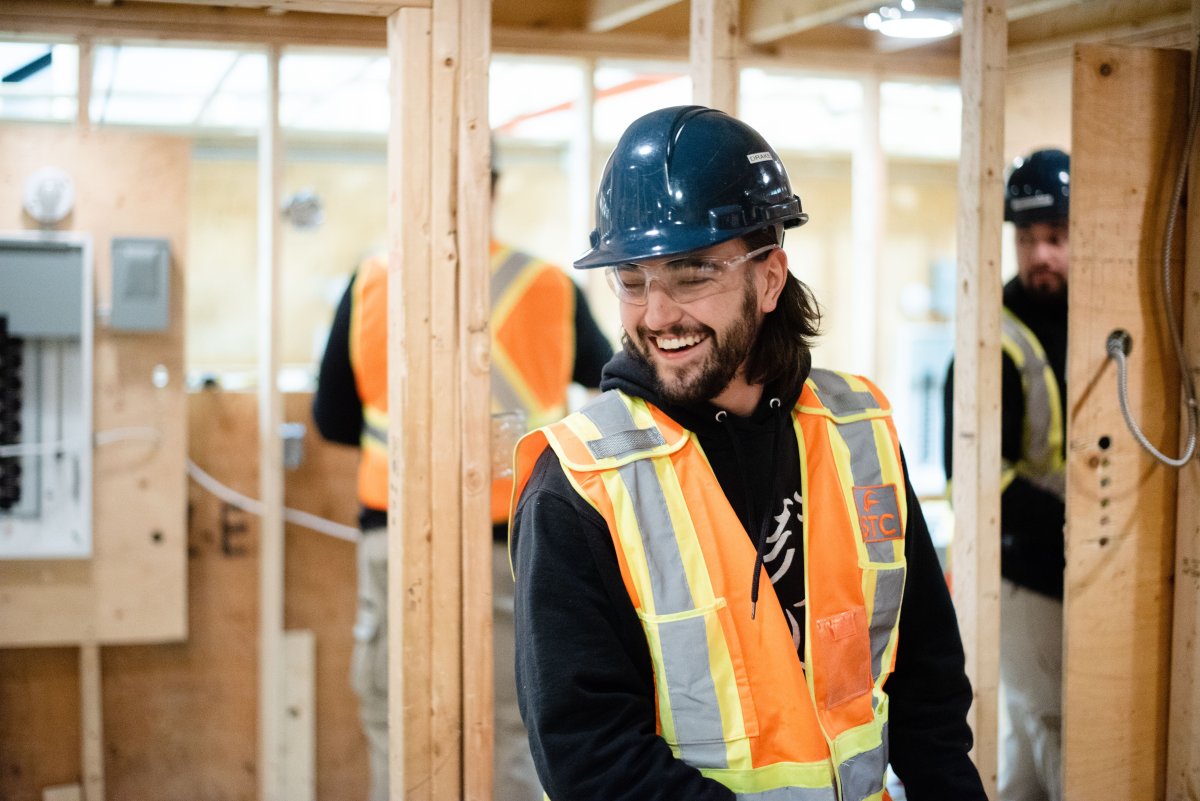Between February and April, 5.5 million Canadian workers were affected by the COVID-19 economic shutdown, either by job loss or reduced hours. By June, 3.1 million workers remained affected, forcing many unemployed Canadians to consider a return to school.

Some are forgoing traditional diplomas and degrees in favour of learning a skilled trade. Not only are skilled trades among some of the most in-demand jobs in the country in 2020, but the government of Canada is also investing $40 million over three years in order to fill those positions.
In partnership with Skilled Trades College of Canada (STC), we take a look at the benefits of learning a skilled trade and why the field may offer a greater overall work-life balance than some traditional vocations.
What it means to earn as you learn
The “earn while you learn” catchphrase associated with trades is familiar for good reason. Rather than sinking money into tuition and books, students generally pay for a shorter period of schooling and then start working at job sites as an apprentice, immediately bringing home a paycheque.
Even when additional schooling is required in order to complete a certification, employees are still earning a salary. “What a lot of people don’t know is that you’re getting paid to go to school,” explains Stefano Debartolo, an instructor in the electrical program at STC. “Whatever your wages on the site or wherever you are working, you make 80 per cent of that while you’re going to school.”
Debartolo originally went to school for computer programming and dabbled in music. But when he met his future wife, he decided to get into the trades. “I always liked working with my hands, so this was a natural fit for me,” he says, revealing that he landed a job almost as soon as he graduated from the college.
“The trades can be a fantastic way to go,” says Paul Bigelli, an instructor in the intro to home renovation program at STC. He originally studied criminal psychology at Carleton University, but has now been in construction for more than 30 years.
“There is a ton of work here in the GTA for people who are willing to work,” Bigelli adds. “We get people job-ready in 12 weeks, and you can earn a great living with a higher-than-average wage or salary.”
Hard work doesn’t always mean physical labour, Debartolo says. While some jobs in the skilled trades are definitely more physical than others, he says that there is a wide spectrum of employment opportunities that aren’t hard on your body.
“It’s just a matter of finding the right trade for you. Tradespeople do data work sometimes, or panel work, where you’re standing in front of a panel all day and doing more mental or math stuff with calculations,” he says.
He also thinks there’s more room for growth than people may believe. “Take an estimator, for example. He or she will get new drawings from a contractor and have to price out how much the job is going to cost. If that person didn’t have the experience of being on the tools and knowing how much different materials cost, they wouldn’t be able to do that. You’re not just stuck in a trade. There’s room to move around.”
Why skilled trades offer a better work-life balance
Debartolo believes that if he had pursued a career in computer engineering, he wouldn’t have time for the hobbies and travel he enjoys now. That work-life balance hasn’t just afforded him extra opportunities to do the things he enjoys, but has also had a positive impact on his overall mental health.
“It’s impossible to bring your work home with you,” he says, noting that he’s done with work by about 3:30 p.m. every day. “You can take your time that you need to wind down, and I find I’m not stressed out from working too much. There’s no pressure. Some of my friends have gone to school for seven years, getting their master, and then they have to stress because they’re working until 8 p.m. some days. It really bears on you.”
According to a report from the Mental Health Commission of Canada, 70 per cent of employees in Canada are concerned about the psychological health and safety of their workplace. The inability to disconnect, longer working hours and a lack of physical exercise while sitting at a desk job all contribute to those concerns.
“It’s certainly a nice schedule. You don’t have to work crazy hours,” Bigelli says. “Our motto is you love life and work construction and so you can work hard and play hard. You can take time off and enjoy your time off with your family if you’re raising kids and still make a good living.”
Learn more and take a virtual tour of the college campus by visiting the Skilled Trades College of Canada website.



